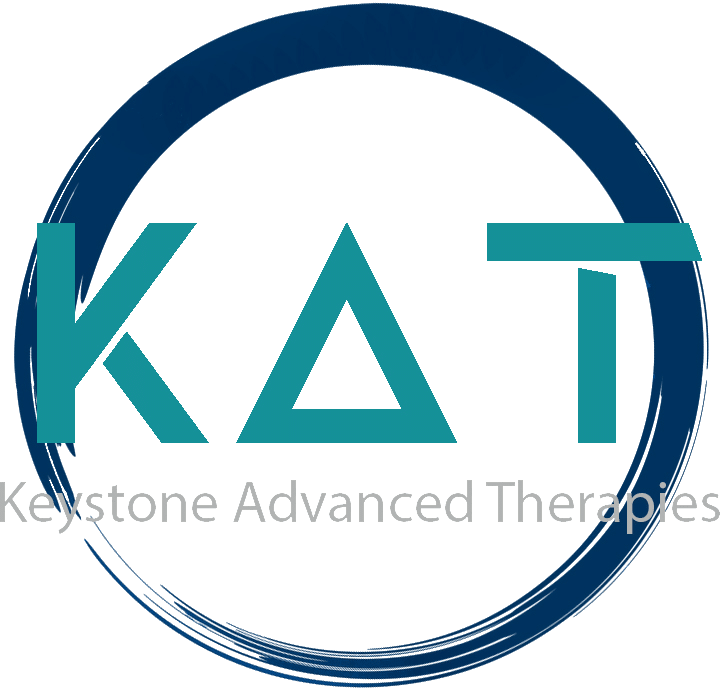Introduction
Ketamine therapy has emerged as a promising treatment for chronic pain and mental health conditions, offering newfound hope to those who have been suffering. Chronic pain can be debilitating, affecting every aspect of a person’s life and leading to decreased quality of life. It is estimated that millions of individuals worldwide are living with chronic pain, which can stem from various conditions such as fibromyalgia, complex regional pain syndrome (CRPS), and psychogenic pain. Traditional treatments often fall short in providing long-term relief, leaving patients desperate for alternative solutions.
In recent years, ketamine infusion therapy has gained recognition for its effectiveness in managing chronic pain. Ketamine is a dissociative anesthetic that has been used for decades in surgical settings. However, research has shown that ketamine also possesses unique properties that make it an ideal candidate for treating chronic pain and mental health conditions. By targeting the brain’s receptors and neurotransmitters, ketamine can interrupt the cycle of pain signals and provide much-needed relief.
Beyond its impact on chronic pain, ketamine therapy has also shown promise in alleviating symptoms of depression. Depression is a common comorbidity among individuals with chronic pain, exacerbating their suffering and making it even more challenging to find effective treatment options. Traditional antidepressant medications can take weeks or even months to show any noticeable improvement, leaving patients feeling hopeless in their battle against depression. Ketamine therapy offers a glimmer of hope by providing rapid relief from depressive symptoms within hours or days.
Moreover, ketamine therapy may hold potential benefits for individuals struggling with post-traumatic stress disorder (PTSD) and fibromyalgia. PTSD is a psychiatric disorder that develops after experiencing or witnessing a traumatic event, leading to intrusive thoughts, nightmares, anxiety, and avoidance behaviors. Fibromyalgia is a chronic condition characterized by widespread musculoskeletal pain accompanied by fatigue, sleep disturbances, memory issues, and mood disorders. Both conditions can significantly impact a person’s daily functioning and overall well-being. Ketamine therapy has shown promise in reducing the severity of symptoms associated with PTSD and fibromyalgia, offering new avenues for treatment.
Dr. Scot DePue, MD, is a highly experienced physician who specializes in ketamine therapy at Keystone Advanced Ketamine Therapy in Wyomissing, Pennsylvania. With his expertise and compassionate approach to patient care, Dr. DePue strives to improve the lives of individuals suffering from chronic pain and mental health conditions. By combining his medical knowledge with the latest advancements in ketamine therapy, Dr. DePue offers patients a comprehensive treatment plan tailored to their unique needs.
The Impact of Chronic Pain on Quality of Life
Chronic pain can have a profound impact on a person’s quality of life, affecting their physical, emotional, and social well-being. It is not just a temporary discomfort or inconvenience; it can be debilitating and lead to significant limitations in daily activities. The constant pain can make it difficult to perform simple tasks such as walking, standing, or even sitting for extended periods. This can result in decreased mobility and independence, causing individuals to rely on others for assistance with basic activities of daily living.
The physical toll of chronic pain is often accompanied by emotional distress. Living with persistent pain can lead to feelings of frustration, anger, and sadness. It can also contribute to the development of anxiety and depression. The constant discomfort and inability to find relief can wear down a person’s mental resilience over time. They may become more isolated from friends and family as they struggle to participate in social activities or maintain relationships.
Furthermore, chronic pain can disrupt sleep patterns, leading to fatigue and decreased cognitive function. Sleep disturbances are common among individuals with chronic pain conditions, making it challenging for them to get the restorative rest they need. As a result, they may experience difficulties with concentration, memory loss, and impaired decision-making abilities.
The impact of chronic pain extends beyond the individual experiencing it; it also affects their loved ones. Family members often shoulder the burden of providing support and care for someone living with chronic pain. This responsibility can strain relationships and create additional stress within the family unit.
The financial implications of chronic pain cannot be overlooked either. Medical expenses related to diagnosing and treating the underlying condition that causes the pain can quickly add up. Additionally, individuals with chronic pain may require ongoing treatments such as medications, physical therapy sessions, or specialized interventions like ketamine infusion therapy.
The Effectiveness of Ketamine Infusion Therapy
Ketamine infusion therapy has gained recognition for its effectiveness in treating chronic pain and mental health conditions. This innovative treatment approach offers hope to individuals who have struggled to find relief through traditional methods. The use of ketamine as a therapeutic agent has shown promising results, providing significant benefits for patients.
One of the key reasons why ketamine infusion therapy is effective is its ability to target the N-methyl-D-aspartate (NMDA) receptors in the brain. These receptors play a crucial role in the transmission of pain signals, and by blocking their activity, ketamine can effectively reduce pain levels. This makes it particularly beneficial for individuals suffering from chronic pain conditions such as complex regional pain syndrome (CRPS) or psychogenic pain.
Furthermore, ketamine infusion therapy has been found to have rapid-acting antidepressant effects. Depression often coexists with chronic pain, and this treatment approach addresses both conditions simultaneously. Research has shown that ketamine can help alleviate symptoms of depression within hours or days, compared to weeks or months with traditional antidepressants. This quick response time can be life-changing for individuals who are struggling with severe depressive symptoms.
In addition to its impact on chronic pain and depression, ketamine infusion therapy has shown promise in treating post-traumatic stress disorder (PTSD) and fibromyalgia. PTSD is a mental health condition that arises after experiencing or witnessing a traumatic event, and it can significantly impair an individual’s daily functioning. Ketamine has been found to disrupt traumatic memories and lessen the emotional intensity associated with them, providing relief for those affected by PTSD.
Fibromyalgia is another condition characterized by widespread musculoskeletal pain accompanied by fatigue, sleep disturbances, and mood issues. Traditional treatments for fibromyalgia often provide limited relief, leaving many patients searching for alternative options. Ketamine infusion therapy has emerged as a potential solution due to its analgesic properties and ability to modulate neurotransmitters involved in pain processing. By targeting the underlying mechanisms of fibromyalgia, ketamine can help alleviate pain and improve overall quality of life for those living with this condition.
When considering ketamine infusion therapy, it is essential to seek treatment from a qualified and experienced physician like Dr. Scot DePue. With his expertise in ketamine therapy, Dr. DePue ensures that patients receive the highest standard of care. He takes a compassionate approach, tailoring treatment plans to meet each patient’s unique needs and goals.
The Connection Between Depression and Ketamine Therapy
Depression is a complex mental health condition that affects millions of people worldwide. It is characterized by persistent feelings of sadness, hopelessness, and a loss of interest in activities. While there are various treatment options available for depression, ketamine therapy has emerged as a promising alternative for those who have not responded well to traditional treatments.
Research has shown that ketamine can rapidly alleviate symptoms of depression, often within hours or days, compared to weeks or months with conventional antidepressant medications. This rapid onset of action is particularly beneficial for individuals who are experiencing severe depressive episodes or suicidal thoughts and need immediate relief.
So, how does ketamine work to alleviate depression? Ketamine acts on the brain’s glutamate system, which is involved in mood regulation. It increases the production of certain proteins that help repair damaged neural connections and stimulate the growth of new ones. This neuroplasticity is believed to be one of the key mechanisms through which ketamine exerts its antidepressant effects.
In addition to its direct impact on mood regulation, ketamine also has anti-inflammatory properties. Chronic inflammation has been linked to depression and other mental health conditions. By reducing inflammation in the brain, ketamine may help alleviate depressive symptoms.
It’s important to note that while ketamine shows promise in treating depression, it is not a cure-all solution. It should be used as part of a comprehensive treatment plan that includes therapy and lifestyle changes. Ketamine therapy may provide immediate relief from depressive symptoms, but ongoing maintenance sessions are usually necessary to sustain the benefits.
Another area where ketamine therapy has shown potential is in the treatment of post-traumatic stress disorder (PTSD) and fibromyalgia. Both conditions often coexist with depression and can exacerbate its symptoms. Studies have found that ketamine can help reduce PTSD symptoms and improve overall quality of life for individuals living with fibromyalgia.
Dr. Scot DePue at Keystone Advanced Ketamine Therapy has extensive experience in administering ketamine infusion therapy for depression, PTSD, and fibromyalgia. He takes a personalized approach to treatment, tailoring the dosage and frequency of ketamine sessions to each patient’s specific needs. Dr. DePue’s expertise in ketamine therapy ensures that patients receive the highest level of care and achieve optimal outcomes.
Potential Benefits of Ketamine Therapy for PTSD and Fibromyalgia
Ketamine therapy has shown promise in providing relief for individuals suffering from post-traumatic stress disorder (PTSD) and fibromyalgia. PTSD is a mental health condition that can develop after experiencing or witnessing a traumatic event, causing symptoms such as flashbacks, nightmares, and severe anxiety. Fibromyalgia, on the other hand, is a chronic pain disorder characterized by widespread musculoskeletal pain, fatigue, and sleep disturbances. Both conditions can significantly impact an individual’s quality of life and daily functioning.
One potential benefit of ketamine therapy for PTSD is its ability to rapidly reduce symptoms. Traditional treatments for PTSD often involve psychotherapy and medication management, which may take weeks or even months to show significant improvement. However, ketamine infusion therapy has been found to provide rapid relief from symptoms of PTSD in some patients. The fast-acting nature of ketamine allows individuals to experience relief much sooner than with traditional treatment methods.
In addition to its rapid effects, ketamine therapy has also been shown to have long-lasting benefits for individuals with PTSD. Research suggests that ketamine can help break the cycle of fear associated with traumatic memories by targeting specific receptors in the brain involved in memory consolidation and emotional processing. By disrupting these pathways, ketamine can potentially help individuals reprocess traumatic memories in a less distressing way.
Fibromyalgia is another condition that may benefit from ketamine therapy. Chronic pain is one of the primary symptoms of fibromyalgia, often leading to decreased mobility, fatigue, and overall reduced quality of life. While there is no cure for fibromyalgia, managing pain is crucial for improving daily functioning.
Ketamine infusion therapy offers a unique approach to managing chronic pain associated with fibromyalgia. Studies have shown that low-dose ketamine infusions can effectively alleviate pain symptoms in individuals with fibromyalgia. Ketamine works by targeting N-methyl-D-aspartate (NMDA) receptors in the brain, which are involved in pain processing. By blocking these receptors, ketamine can help reduce the intensity of pain signals, providing relief for individuals with fibromyalgia.
Furthermore, ketamine therapy may also have a positive impact on other symptoms commonly associated with fibromyalgia, such as fatigue and sleep disturbances. Many individuals with fibromyalgia experience disrupted sleep patterns and struggle with chronic fatigue. Ketamine has been found to improve sleep quality and increase energy levels in some patients, allowing them to better manage their condition and engage in daily activities.
Dr. Scot DePue’s Expertise in Ketamine Therapy
Dr. Scot DePue is a highly experienced physician who specializes in ketamine therapy at Keystone Advanced Ketamine Therapy in Wyomissing, Pennsylvania. With his extensive knowledge and expertise, Dr. DePue has helped numerous patients find relief from chronic pain and mental health conditions through ketamine infusion therapy.
Having completed advanced training in the field of ketamine therapy, Dr. DePue is well-versed in the latest research and techniques related to this innovative treatment. He stays up-to-date with the evolving field of ketamine therapy, ensuring that his patients receive the most effective and cutting-edge care available.
Dr. DePue’s expertise extends beyond his technical knowledge of ketamine therapy. He also possesses a deep understanding of the unique challenges faced by individuals with chronic pain and mental health conditions. This empathy allows him to provide compassionate care that addresses both the physical and emotional aspects of his patients’ well-being.
In addition to his expertise in ketamine therapy, Dr. DePue is committed to a holistic approach to patient care. He takes the time to thoroughly assess each patient’s individual needs and develops personalized treatment plans tailored to their specific condition and goals. This comprehensive approach ensures that patients receive the most appropriate and effective care for their unique circumstances.
Dr. DePue’s dedication to his patients’ well-being is evident in the positive results they achieve under his care. Many individuals who have undergone ketamine infusion therapy at Keystone Advanced Ketamine Therapy have experienced significant improvements in their chronic pain symptoms, as well as reductions in depression, PTSD, fibromyalgia, and other mental health conditions.
Patients can trust Dr. Scot DePue for his expertise, professionalism, and commitment to improving their lives through ketamine therapy. With his guidance and support, individuals suffering from chronic pain or mental health conditions can find hope for a brighter future filled with relief and improved quality of life.
To learn more about how Dr. DePue’s expertise in ketamine therapy can benefit you, contact Keystone Advanced Ketamine Therapy today to schedule a consultation.
Conclusion
In conclusion, ketamine therapy offers a promising solution for individuals suffering from chronic pain and mental health conditions. By understanding the impact of chronic pain on quality of life, we can appreciate the significance of finding effective treatment options. Ketamine infusion therapy has shown great potential in providing relief for those experiencing psychogenic pain, as well as improving symptoms associated with depression, PTSD, and fibromyalgia.
The effectiveness of ketamine therapy lies in its ability to target specific receptors in the brain, promoting neuroplasticity and facilitating new connections that alleviate pain and improve mood. This innovative approach has been met with success in numerous clinical studies and is increasingly recognized as a valuable tool in managing chronic pain and mental health disorders.
Furthermore, the connection between depression and ketamine therapy cannot be overlooked. Depression often coexists with chronic pain, exacerbating symptoms and diminishing overall well-being. Ketamine infusion therapy has demonstrated rapid antidepressant effects, offering hope to individuals who have not found relief through traditional treatments.
Additionally, ketamine therapy shows promise in addressing other conditions such as PTSD and fibromyalgia. The potential benefits extend beyond pain management, providing a holistic approach to improving overall quality of life for patients struggling with these debilitating conditions.
Dr. Scot DePue’s expertise in ketamine therapy further enhances the credibility and trustworthiness of Keystone Advanced Ketamine Therapy. With his experience and compassionate care, patients can feel confident that they are receiving top-notch treatment tailored to their specific needs.
In conclusion, ketamine therapy represents a breakthrough treatment option for individuals suffering from chronic pain and mental health conditions. Its effectiveness in alleviating psychogenic pain, improving symptoms of depression and other mental health disorders, and enhancing overall well-being makes it a valuable tool in modern medicine. With Dr. Scot DePue’s expertise at Keystone Advanced Ketamine Therapy, patients can find relief from their ailments and regain control over their lives. Don’t let chronic pain and mental health conditions hold you back any longer – consider ketamine therapy as a viable treatment option and unlock the relief you deserve.
Are you or a loved one struggling with chronic pain or mental health issues? Discover the transformative power of Ketamine Therapy. Our compassionate team of experts is here to guide you towards a life free from pain and emotional distress. Don’t wait another day to take control of your well-being. Book your consultation or call us at (610) 396 – 5339 to speak with a specialist today.














